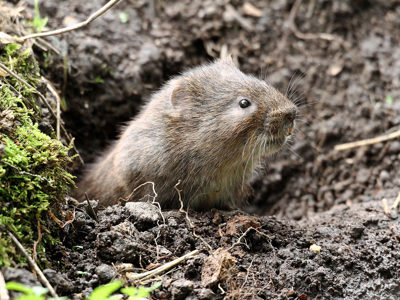
Water vole captive breeding, reintroductions and mitigation
In recent years, water voles (Arvicola amphibius) have suffered a huge decline across the UK. The main causes are fragmentation and loss of habitat and the accidental introduction of the American mink.
The construction of transport networks and housing developments split vole territories and prevent migration between colonies. This fragmentation of water vole colonies leads to inbreeding within the population and eventually causes localised extinctions. In addition to this, during the 1900’s American mink were brought to the UK and kept in fur farms. Many escaped or were released, allowing a wild population to establish and thrive. Female and juvenile mink are slim enough to follow water voles into their burrows, gradually removing them from their territory. It soon became evident that without extensive conservation efforts and a change in legislation, water voles would soon become extinct in the UK.
Legislation
Before 2008, water voles received limited protection under the Wildlife and Countryside Act 1981 (as amended) which protected the habitat they occupied, but not the voles themselves. Considerable survey effort highlighted a huge decline in numbers across the UK in the late 90’s. On the 6th April 2008, water voles were granted full legal protection in England and Wales, under Section 9 of Schedule 5 of the Act. The Act offers protection against intentional killing, capture or injury and intentional or reckless disturbance, obstruction, damage or destruction of their burrows. If water voles are found during any construction project, all works must stop immediately to avoid breaking the law.
Licences may be granted under Section 16 by Natural England to allow activities which would otherwise be classed as an offence:
- For scientific or educational purposes;
- For the purposes of ringing or marking;
- For conserving wild animals or introducing them into a particular area;
- Preserving public health or public safety;
- Preventing the spread of disease;
- Preventing serious damage to any form of property or to fisheries.
Mitigation Services
Proposed development sites likely to be inhabited by water voles must be surveyed by experienced ecologists to determine their presence. If found, a mitigation strategy must be implemented by licensed ecologists. Wildwood offers a range of water vole services from assisting ecological consultants with mitigation strategies to full reintroductions. Any profit generated through our ecological services is invested back into our conservation projects.
If you would like further information on how we can assist you with your project or if you require a quote, don’t hesitate to contact us at conservation@wildwoodtrust.org or call 01227 711471.

Water vole quarantine area
In the event of water voles requiring relocation through development projects, Wildwood has the capacity and facilities to temporarily house the voles within our purpose built quarantine area. Individual enclosures provide access to a large water bowl (for swimming), a nest box and fresh supply of fruit, vegetables and natural foods. During extended periods of time in captivity, Wildwood’s conservation team have the expertise and facilities to captive breed them, providing young, healthy offspring for release.
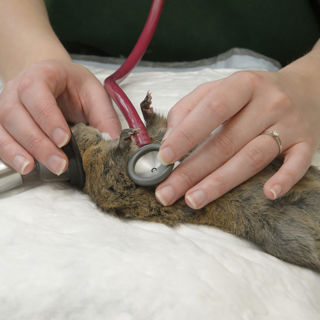
Health screening
Upon arrival and before departure to the wild, the water voles receive a thorough health check including collecting blood and faecal samples for parasitic and disease screening.
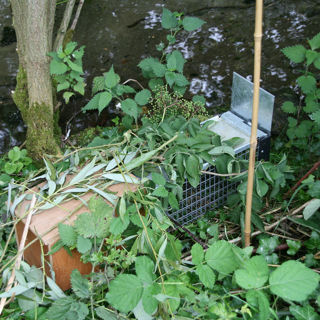
Trapping
In line with guidance set out in the Water Vole Conservation Handbook, in the event of water voles requiring relocation either to another site or to temporary holding facilities, the Wildwood team can provide experienced staff to carry out the trapping, or loan equipment once a license has been granted by Natural England.

Habitat Suitability Survey
The first stage of planning a water vole reintroduction is to complete a habitat suitability assessment, a service which is provided by the Wildwood Trust Conservation team. Skilled staff know exactly what to look for when considering a reintroduction site and can offer advice and guidance on methods to improve the habitat to benefit water voles and other wetland species.
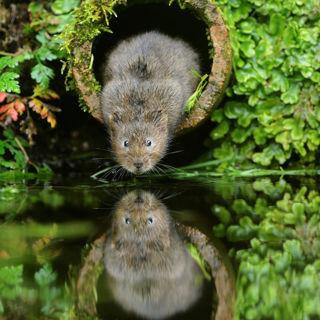
Water vole reintroductions
Specially designed captive breeding enclosures enable us to breed water voles for reintroduction projects. In addition to providing the water voles, we can also assist with every aspect of a reintroduction including:
• Habitat suitability assessment
• Habitat management advice
• Micro-chipping water voles
• Provision and installation of soft release pens
• Post release monitoring
• Annual population monitoring, through a field sign survey
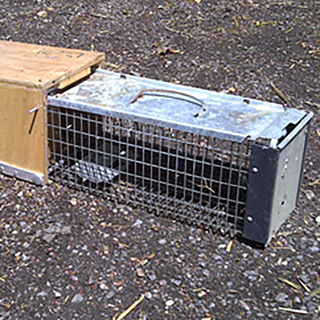
Water vole traps
Our humane live traps used to safely catch water voles for development mitigation work, are purpose built and easy to use. They contain a large nest box that provides safety and shelter and a generous amount of space for bedding and food.
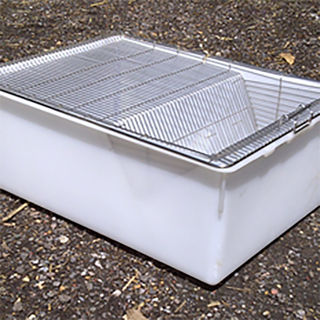
Water vole transport cage
Our transport cages provide plenty of space for nesting material and food, offering a comfortable and safe environment for housing water voles during transit, from your site to their temporary accommodation. The plastic and metal material allows easy disinfection between uses.
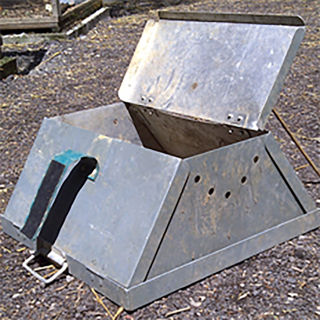
Soft release pens
When releasing water voles, we recommend the use of soft release pens. Our pens are made from high quality aluminium and are designed to fold flat for ease of transporting. They are designed to be dug into the ground and provide shelter and refuge from predators on site. The bottomless floor encourages water voles to burrow out into their new surroundings.
Water vole handling training course
Wildwood offers regular and bespoke training courses for professionals wishing to gain handling experience and covers a range of other topics related to trapping water voles. Training can be hosted at Wildwood, using our captive collection or onsite.
Contact Us
Direct line: 01227 711471
Email: conservation@wildwoodtrust.org
